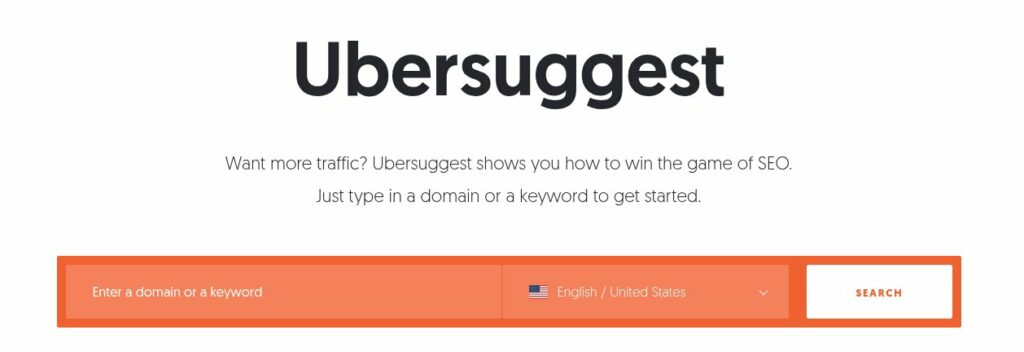
How AI-Powered Affiliate Sites Are Changing the Game
Trying to stand out as an affiliate marketer feels tougher than ever. Years ago, it was a little easier to grab some keywords and see decent traffic just by publishing content regularly. Fast-forward to today, and you’ll notice Google’s gotten a lot smarter. Generic sites and copycat content rarely stick. The good news is, AI is helping regular folks skip a lot of the grunt work and create affiliate sites that look way more legit, get noticed by search engines, and bring in steady commissions. The days of keyword-stuffing and random article spinners are gone. Now it’s all about smart automation that helps you do more with less effort.
Why Automating SEO Matters for Affiliate Marketers
SEO isn’t just a checklist; it’s at the core of making affiliate sites that actually earn money. I see plenty of people chasing the next hot product or link scheme, only to wind up with thin traffic that never pays off. With AI tools, I can automate so much of the process, from keyword research all the way to content audits and link prospecting. That means less busywork and more time fine-tuning campaigns, which directly helps me make more consistent affiliate sales. AI isn’t a “set it and forget it” magic button, but it’s pretty handy for speeding up the boring stuff and letting me focus on what works.
The Modern Playbook: How AI Tools Shape Profitable Affiliate Sites
Breaking down the new approach, here’s how I use AI to build affiliate projects that don’t just blend in:
- Automated Keyword Research: Instead of guessing what buyers want, AI-powered keyword tools (like SurferSEO, Ahrefs, or SEMrush’s AI integrations) scrape the SERPs and spot gaps that are winnable. They even suggest longtail keywords or question-based queries I’d miss on my own.
- Topic & Content Development: Modern AI writers (think Jasper, ChatGPT, or Copy.ai) craft outlines, generate drafts, and rewrite product reviews in seconds. Pair that with topical clusters and automated content briefs, and I’m not stuck writing from scratch.
- Link Prospecting & Outreach: Some AI platforms can help build outreach lists and draft emails, taking the pain out of securing guest posts or resource mentions for better backlink profiles.
- On Page & Technical SEO: AI site auditors highlight technical SEO fixes, optimize headings, image alt text, and even create schema markup. All handled automatically, so I don’t have to dig through every page.
Using the right tools is important, and I’m always testing out new platforms to keep my workflow sharp.
Step-by-Step: Automating Your Affiliate SEO Workflow with AI
If you’re brand new to this, getting overwhelmed is common. There’s a lot of noise and shiny new tools popping up daily. Here’s how I tackle things step by step:
1. Finding Profitable Niches with AI
Instead of scrolling random forums for “easy niches,” I lean on AI to analyze traffic trends, competition, and untapped keyword clusters. Tools like Exploding Topics and Ahrefs’ Keyword Explorer, powered by AI, track new product trends or rising questions in real time. When a niche starts seeing a spike but isn’t oversaturated, I jump in faster.
2. Automated Content Planning
AI-driven content planners are a game-changer. I enter my niche, and the tool spits out hundreds of topic ideas built around pillar keywords, product comparisons, FAQs, and buyers guides. Feed this data into your AI writing assistant, and batch-create solid first drafts for weeks ahead.
3. Generating SEO-Optimized Content
Most of my content starts with an AI-generated rough draft (using tools like Jasper or ChatGPT), but I always add my spin, expert tips, and product experience. AI helps fill in supporting facts and surface competitor questions, so my reviews feel deeper and more legit than typical generic write-ups. Internal linking and semantically related terms are automatically suggested, which is great for boosting on-page SEO without stress.
4. Building Smart Internal Links
AI-powered SEO plugins (like Link Whisper or SurferSEO’s internal link suggestions) make linking up my top pieces and adding contextual anchors a breeze. Google rewards well-structured internal links, and with AI, I can maintain link hygiene, distribute authority, and help new pages rank without hand-coding.
5. Automated Technical & On-Page Audits
Keeping a site healthy is tough. Technical issues, slow pages, missing meta tags, or duplicate content sneak in. AI-based SEO auditors keep an eye out and shoot me simple fixes. I rely on Screaming Frog with AI plugins or Sitebulb for actionable reports. These tools reduce site errors that can sabotage rankings and commissions.
AI Copywriting: Making Your Affiliate Site Stand Out
There’s a lot of hype around AI writing, but not every tool creates content that feels real or persuasive. The trick I’ve learned is to start with AI, then layer in my voice and genuine opinions. Here’s how to squeeze the most value out of AI-generated copy:
- Use AI for Outlines & Drafts: Gather key data and address buyer FAQs quickly.
- Inject Real Experience: Add personal product examples, photos, or hands-on tips (even if it means ordering the product myself).
- Edit for Tone and Trust: Give articles a natural, relatable tone. I always double-check stats, add clear pros & cons, and make sure I sound helpful instead of robotic.
Combining AI speed with your real insights frames you as an expert, which matters for those Google E-E-A-T guidelines.
Link Building with AI: Smarter Outreach, Faster Growth
I used to spend hours tracking down sites to pitch for backlinks. AI-driven link-building tools now scan the web for quality opportunities, prioritize prospects, and sometimes even draft intro emails. That means less busywork and more chances to get solid links that actually move the needle. I recommend tools like Respona or BuzzStream with AI automation to manage lists, create custom pitches and follow-ups, and stay organized as campaigns grow.
Tracking Results and Tweaking for Bigger Commissions
One of the biggest mistakes is “set it and forget it” thinking. Even with tons of automation, I keep a close eye on analytics, affiliate dashboard stats, and ranking changes. AI-powered reporting tools crunch performance data, flag weird drops or new wins, and even predict emerging opportunities. Google Analytics 4, Search Console with AI plugins, or custom dashboards offer quick insights that help me update my strategy when needed. Maybe swapping out underperforming products, reworking old content, or doubling down on what’s already working.
Common Pitfalls: Avoiding Trouble with AI-powered Affiliate Marketing
AI tools are pretty sharp, but they’re not perfect. It’s easy to end up with content that feels thin or too similar to what’s already online. I stay on top of things by editing heavily, adding real research, and regularly refreshing posts. Also, I’m careful about automating link outreach so it doesn’t come off as spammy. Personalization and quality are super important to avoid algorithm penalties or burning out potential partners.
Stacking AI Tools for Maximum Affiliate Success
I’ve experimented with a ton of stacks and integrations, and here’s a quick toolset I rely on:
- Ahrefs, SEMrush, Exploding Topics: AI-driven research, keyword discovery, authority tracking.
- Jasper, ChatGPT, SurferSEO: Fast content outlines and on-page optimization.
- Link Whisper, Respona: Internal linking and backlink outreach that scale.
- Screaming Frog, Sitebulb: Technical audits and fix suggestions on autopilot.
Combining these gives me a serious edge in automating repetitive work so I can focus on product research, negotiation, and connecting with readers.
Getting Started: Tips for Affiliate Marketers New to AI
Jumping in doesn’t need to be overwhelming. A few small steps go a long way:
- Pick one process to automate first, maybe keyword research or content outlines, and get comfortable before adding more tools.
- Focus on real value for your readers. The best sites help people make smart buying choices, not just chase clicks.
- Keep learning; AI changes quickly, and staying on top of updates means you’ll spot new angles before your competition.
- Always review what your tools spit out and make it your own. Human touch still wins. AI just helps you move faster.
With the right mix of tools and hands-on effort, banking bigger affiliate commissions feels a lot more doable, even for small sites or solo creators.
For affiliate marketers willing to get involved and put in the effort, AI automation has made the game much more accessible. Instead of grinding through tedious research or manual outreach, you can focus on strategy, connect with your audience, and keep growing. If you’re ready to get into the new era of affiliate marketing, now’s your chance to set up smarter systems and see how far you can take it.







